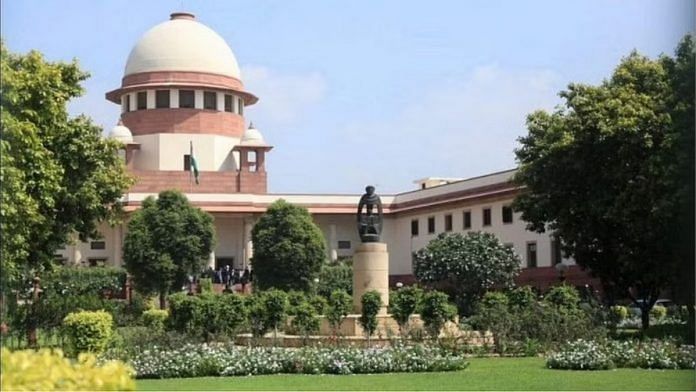New Delhi: Irretrievably broken marriages spell cruelty to both sides, the Supreme Court has said, granting divorce to a couple separated for over 25 years now.
On 26 April, a bench led by Justice Sudhanshu Dhulia allowed the husband’s divorce plea, after holding that there was “irretrievable breakdown” of marriage and that it can be defined as “cruelty” under Section 13 (1)(ia) of the Hindu Marriage Act that enumerates grounds to dissolve a marriage.
The husband had challenged the Delhi High Court’s 2011 verdict overruling a trial court order that granted divorce.
The judgment is likely to be cited as a precedent in similar divorce cases where either of the spouses seeks judicial separation on the ground of irretrievable breakdown of marriage.
While cruelty is listed as one of the grounds for divorce under Section 13 (1)(ia) of the Act, irretrievable breakdown of marriage isn’t. However, the apex court has in the past exercised its special powers under Article 142 of the Constitution to grant divorce on the ground of irretrievable breakdown of marriage.
In doing so, the court also made a strong recommendation to the Centre to consider adding ‘irretrievable breakdown’ as a ground for divorce under the Act. Wednesday’s verdict is notable since the Supreme Court has for the first time read ‘irretrievable breakdown’ under the cruelty clause as a valid condition for divorce.
Cruelty, the bench said, is not defined under the Hindu Marriage Act. But, it has to be determined in the context where it has been used and has to be seen as a “human conduct” and “behaviour” in a matrimonial relationship.
Also Read: Muslim Personal Law is an embarrassment. Adapt it to modern life—marriage, divorce, adoption
‘Continuation of cruelty’
While considering the husband’s appeal, the bench noted that the relationship between the parties had become acrimonious over the years and that no child was born out of the wedlock. The court further said that the couple had lived together for just four years, before the separation happened.
It opined that “continuation of this marriage would mean continuation of cruelty, which each, now, inflicts on the other.”
“In our considered opinion, a marital relationship which has only become more bitter and acrimonious over the years, does nothing but inflicts cruelty on both the sides. To keep the façade of this broken marriage alive would be doing injustice to both the parties,” the bench held, while faulting the Delhi High Court that declined to order judicial separation of the couple.
As it took note of the multiple legal battles, in which the husband was either discharged or acquitted and the repeated failures in court-referred mediation sessions, the bench said the same testified that no bond survived between the couple. “It is indeed a marriage which has broken down irretrievably,” it said.
“The long separation and absence of cohabitation and complete breakdown of all meaningful bonds and the existing bitterness between the two, has to be read as cruelty under Section 13(1)(ia) of the 1955 Act,” the court held.
Talking about a “different challenge” that courts face in matrimonial cases, the bench said judges are required to deal with human relationships with its bundle of emotions, with all its “faults and frailties.”
“It is not possible in every case to pin point to an act of cruelty or blameworthy conduct of the spouse. The nature of relationship, the general behaviour of the parties towards each other, or long separation between the two are relevant factors which a court must take into consideration,” the bench said, as it reversed the HC’s finding that filing of multiple cases by the wife against the husband did not amount to cruelty.
(Edited by Tony Rai)
Also Read: Can husband file domestic violence case against wife? Delhi HC to debate law ‘limited to women’



